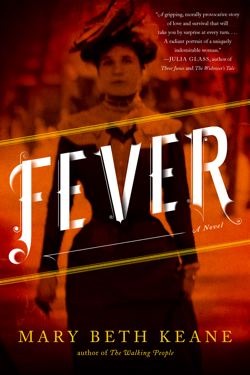
Mary Mallon was a courageous, headstrong Irish immigrant woman who bravely came to America alone, fought hard to climb up from the lowest rung of the domestic service ladder, and discovered in herself an uncanny, and coveted, talent for cooking. Working in the kitchens of the upper class, she left a trail of disease in her wake, until one enterprising and ruthless "medical engineer" proposed the inconceivable notion of the "asymptomatic carrier" — and from then on Mary Mallon was a hunted woman.
In order to keep New York’s citizens safe from Mallon, the Department of Health sent her to North Brother Island where she was kept in isolation from 1907-1910. She was released under the condition that she never work as a cook again. Yet for Mary — spoiled by her status and income and genuinely passionate about cooking—most domestic and factory jobs were heinous. She defied the edict.
Bringing early twentieth-century New York alive — the neighborhoods, the bars, the park being carved out of upper Manhattan, the emerging skyscrapers, the boat traffic — Fever is as fiercely compelling as Typhoid Mary herself, an ambitious retelling of a forgotten life. In the hands of Mary Beth Keane, Mary Mallon becomes an extraordinarily dramatic, vexing, sympathetic, uncompromising, and unforgettable character.
My take: 3 looks
I would think that it is a little difficult to write a fictional account of a real event. The author has to make many assumptions and take some literary license with thoughts, feelings, etc. when it comes to fictionalizing an historical figure. I have a feeling that Keane did a pretty good job here with Mary Mallon, better known as "Typhoid Mary".
I found Mary to be an extremely likable character. At first, that is. She was no nonsense, hard-working, respectful, and very talented at her occupation as a cook to the affluent. However, once it was obvious that she was a carrier of typhoid fever, she absolutely refused to believe that it may be true, and do what the authorities asked of her.
With that said, the book was very easy to read, and compelling. It was factual, as far as Keane could research, and the characters were very realistic. I had no sympathy for Mary, despite the author trying to convey a sense of sympathy in her writing. Nor did I have any sympathy for Mary's partner, Alfred. As a matter of fact, I came to the point of thinking that they deserved one another.
I enjoyed the book, recommend it, and will read more by this author.
No comments:
Post a Comment